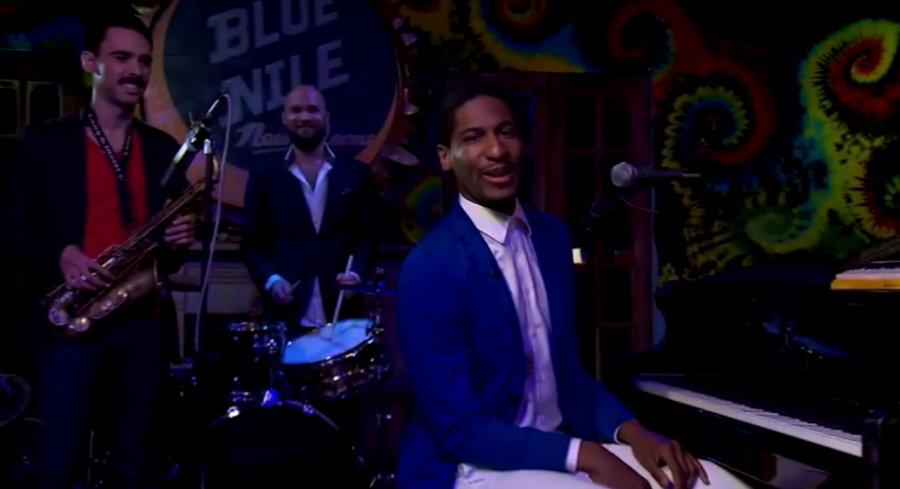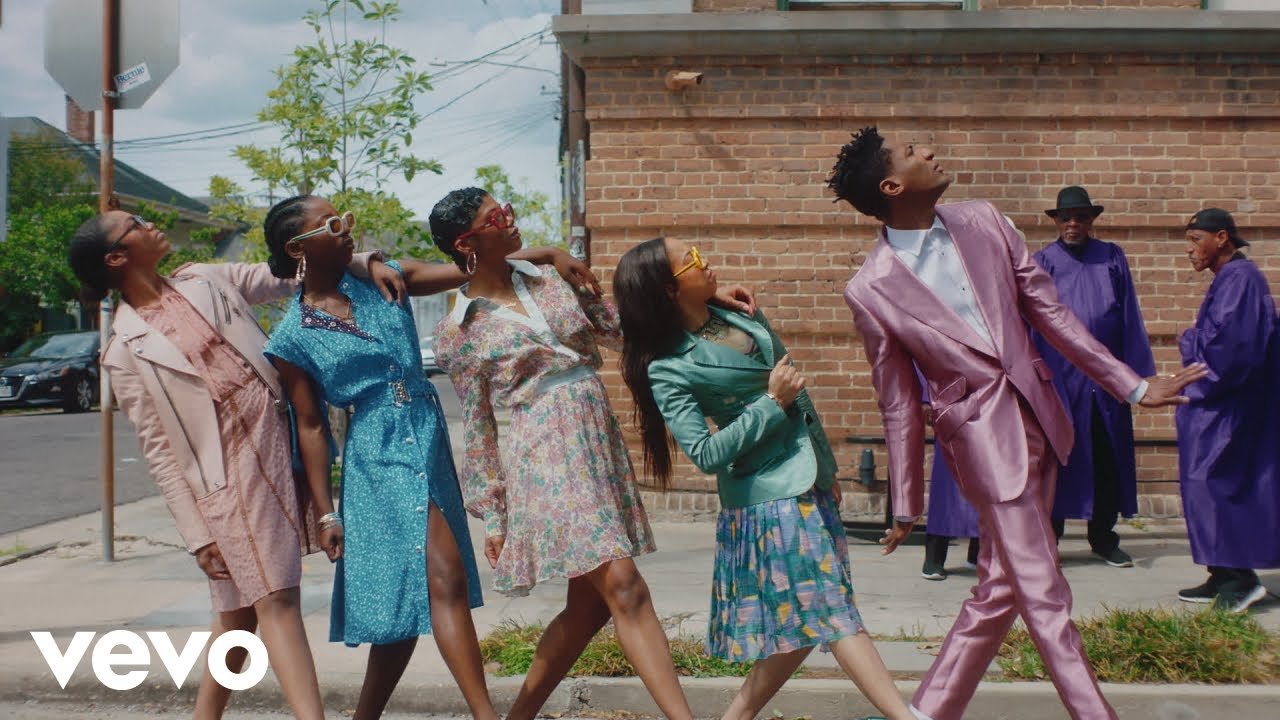Jon Batiste Named Band Leader for Stephen Colbert's "Late Show"

The New Orleans-born keyboard player may have got the gig based on an appearance on "The Colbert Report."
Thursday, Stephen Colbert announced that Batiste would be the band leader when Colbert takes over The Late Show on CBS September 8. “His music makes the audience feel so good, we may have to install a ‘Do Not Make Love’ sign,” Colbert said when he announced the choice.
There's a good chance that the decision was based at least in part on Batiste's appearance as a musical guest on The Colbert Report on July 29, 2014. He not only got the audience rocking in a way that rarely happens on late night television, but he led it into the street for as close to a New Orleans-style street party as New York can manage. The next day, I posted:
When I interviewed Jon Batiste in advance of his appearance at Jazz Fest earlier this year, I wrote:
Although his current career is New York-based, New Orleans shaped his music in intentional and unintentional ways. “The Stay Human lineup coincidentally resembles a second line,” Batiste says, but the tambourine playing of Joe Saylor on Social Music’s “Express Yourself,” “Naima’s Love Song” and much of My N.Y. owes a very direct, deliberate debt to Mardi Gras Indians. “That tradition is one of the only traditions you can draw from inside of America outside of the Afro-American church,” he says. “You can go to Brazil and there are different ways that they play the tambourine. You can go to countries that have used the tambourine as a sacred instrument over the years, but that kind of backbeat, bamboula-based rhythm that you hear in the gospel church and Mardi Gras Indians - I’m always pulling from that.”
Last night, those street music roots were on display when Batiste and Stay Human played The Colbert Report and took their version of "Express Yourself" first in the crowd, then into the streets followed by Colbert and the studio audience. The sequence was joyous in a way that television rarely is, and even if New Yorkers aren't practiced at joining a street parade or performance, it's clear they connected to Batiste and the moment.






